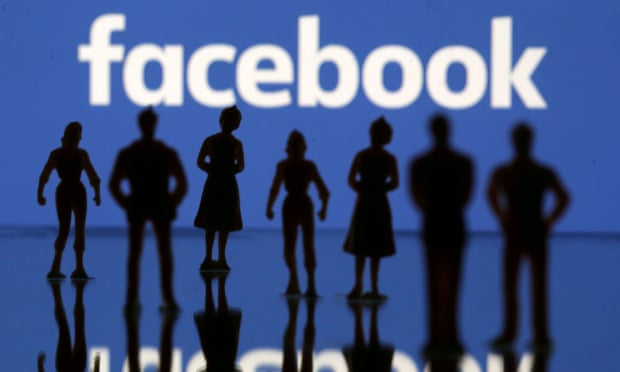
Facebook may eventually have more dead users than living ones.
If Facebook continues to grow at its current rate, the site could have 4.9 billion deceased members by 2100, according to a study by Oxford researchers. Even if growth had stopped entirely last year, the study finds, Facebook would be looking at about 1.4 billion dead members by 2100. By 2070, in that scenario, the dead would already outnumber the living.
Of course, in this case, “users” could be the wrong word; deceased people are not getting much use out of the site. The trouble is, their data lives on – and the fate of all those selfies, life updates and humblebrags remains a thorny topic, the researchers say.
The findings, based on UN population data and information from Facebook’s Audience Insights tool, raise questions over “who has the right to all this data, how should it be managed in the best interests of the families and friends of the deceased and its use by future historians to understand the past”, said Carl Öhman of the Oxford Internet Institute (OLL) in a statement.
“Never before in history has such a vast archive of human behavior and culture been assembled in one place,” added his co-author David Watson. “Controlling this archive will, in a sense, be to control our history.” He cautioned against leaving access to the data in the hands of “a single for-profit firm”.
Indeed, Facebook, whose motto was once “move fast and break things”, is not known for taking great care with its users’ data – this month’s headlines include the FTC’s continuing privacy investigation; legal action in Canada following the Cambridge Analytica scandal; the “unintentional uploading” of 1.5 million users’ email contacts; and the recent revelation that a security lapse affected millions more Instagram users than previously stated.
As it stands, Facebook users who are alive can choose a “legacy contact” who gets access to much of the account’s data after the original user dies – at which point the account can be “memorialized”. Others, however, cannot log into it, posing a potential problem if a person dies before designating a legacy contact.
In an interview with the Observer this weekend, the psychologist Elaine Kasket said that when family members seek access to a deceased relative’s data, Facebook offers “something along the lines of: ‘We’d love to be able to help you with this but we’re not able to.’ They say they are protecting the (technically nonexistent) right of privacy of the deceased.”
A Facebook representative said the company, which disagreed with some of the study’s findings, has “a deep respect for our unique position in people’s lives” and takes its “role in the conversation on building legacy in a digital age seriously”, noting that the site recently updated features available to legacy contacts.
But the Oxford study’s remarkable figures highlight the need for overarching changes, the researchers say. Is it time to appoint social media executors? Should we collect our passwords and include them in our wills? Should our Instagram accounts become part of the historical record – how else will future civilizations be made aware of our #squadgoals?
“Facebook should invite historians, archivists, archaeologists and ethicists to participate in the process of curating the vast volume of accumulated data that we leave behind,” Watson said. “This is not just about finding solutions that will be sustainable for the next couple of years, but possibly for many decades ahead.”
***
You may be interested

Arsenal Equal Chelsea’s London Derby Feat After 5-1 Win Vs Palace
Webby - December 21, 2024Arsenal equaled Chelsea’s London derby achievement following their 5-1 win against Crystal Palace in Saturday’s Premier League game at Selhurst…

Haaland Backs Guardiola To Turn Man City’s Poor Form Around
Webby - December 21, 2024Erling Haaland had said he and his Manchester City teammates are still backing manager Pep Guardiola to turn the team’s…

PSG To Reignite Interest In Osimhen
Webby - December 21, 2024Paris Saint-Germain have contacted Napoli to discuss signing Victor Osimhen in January, according to reports in France.It is reported that…

















![American Pastor, David Wilson Seen Eating The Box Of Woman Who Isn’t His Wife [Video]](https://onlinenigeria.com/wp-content/uploads/2019/10/american-pastor-david-wilson-seen-eating-the-box-of-woman-who-isnt-his-wife-video-150x150.jpg)








